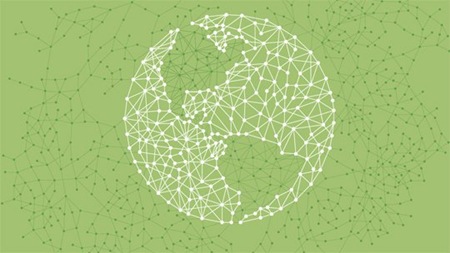
Facebook’s annual developer’s conference, f8, has resulted in a deluge of news about new Facebook changes and tools which will keep commentators and analysts busy for days to come, but the most significant is clearly the redevelopment of the tools which connect Facebook and other websites according to the social activities of Facebook’s more than 400 million users. In a post with a deceptively philanthropic tone, Building the Social Web Together, Facebook’s Mark Zuckerberg reinforces his company’s vision of making the web more meaningful to users (and advertisers):
People are increasingly discovering information not just through links to web pages but also from the people and things they care about. This flow of social information has profound benefits—from driving better decisions to keeping in touch more easily—and we’re really proud that Facebook is part of the shift toward more social and personalized experiences everywhere online. […] Three years ago […] I introduced the concept of the social graph, which is the idea that if you mapped out all the connections between people and the things they care about, it would form a graph that connects everyone together. Facebook has focused mostly on mapping out the part of the graph around people and their relationships. At the same time, other sites and services have been mapping out other parts of the graph so you can get relevant information about different types of things. For example, Yelp maps out the best local businesses and Pandora maps out which songs are related to each other. All of these connections are important parts of the social graph, but until now it hasn’t been possible to easily share the connections
So, in an attempt to create your total ‘social graph’ and link up all of your social data, Facebook’s has a raft of new social plugins and personal integration tools which will allow any website, news story or media item, to become something you can ‘Like’. More to the point, through Facebook you can share every single thing you ‘Like’ with all of your Facebook friends (or the entire world if you happen to have a public profile!).
The simplest explanation of ‘Like’ generated by these tools: you go to a website, you like that website, you click the Facebook ‘Like’ button and two things happen: (1) a message appears on your Facebook profile telling your friends you liked that website; and (2) on the website in question a picture of you (from your Facebook profile image) appears on the website you liked, saying you liked this website, along with pictures of any of your Facebook friends who also liked that website (importantly this personalised list is only visible to you and only if logged in to Facebook). Mashable also has a good overview, noting how very simple it is to integrate Facebook’s ‘Like’ into other websites and services. Facebook’s own explanation of the social plugins and the Like buttons is here, but it’s noteworthy that from the very beginning they are try to stress that Facebook is not giving your private Facebook data to other people:
It’s important to note that none of your personal data is shared with a site when you view these new features, and they will only be visible to you when you’re logged in to Facebook. Also, none of these features impact or change Facebook’s advertising programs or policies.
However, it is of course true that every little ‘Like’ you click deepens the profile of you that Facebook owns, and that richer information becomes more and more valuable it is to advertisers – even when that information has specific personal identifiers removed. While I do think Facebook are showing a healthier concern for people’s privacy, I’m far from convinced sharing all of this information with Facebook is a good thing. Personalisation can be incredibly useful (I find Amazon’s suggestions quite useful, for example, and that’s only possible because they cleverly mine my Amazon purchase history) but it always has some cost and that’s worth keeping in mind. Most of all, what really makes me nervous is how terribly excited marketing folks are by Facebook’s new tools; for them privacy is usually an obstacle, not a right. And, of course, privacy advocates are doing some very sensible flag-waving, asking people think before they ‘Like’. With Zuckerberg boasting that he expects a billion ‘Like’ buttons on the web within 24hours, it’s probably time for everyone to think through exactly how much information they’re willing to share, and what you’ll like Facebook to know, and remember, about you.


New blog post: 'Facebook “Likes” Everything' http://bit.ly/b9n0kp about FB's new social plugins, privacy and personalisation.
RT @tamaleaver: New blog post: 'Facebook “Likes” Everything' http://bit.ly/b9n0kp about FB's new social plugins, privacy and personalisa …
RT @tamaleaver: New blog post: 'Facebook “Likes” Everything' http://bit.ly/b9n0kp about FB's new social plugins, privacy and personalisation
RT @netcrit: RT @tamaleaver: New blog post: 'Facebook “Likes” Everything' http://bit.ly/b9n0kp about FB's new social plugins, privacy and personalisation
@peterfletcher people didn't miss it Peter e.g. http://bit.ly/ahBhEr and various online news articles
@pam_rosengren Thanks, that's a good wrap up by @tamaleaver http://bit.ly/ahBhEr
Blog post by @tamaleaver about FB's new social plugins, privacy & personalisation: 'Facebook “Likes” Everything' http://bit.ly/b9n0kp
As the excited marketer in question – I have advocated for the longest time about ensuring you friend only people you know – these changes make that critical.
A great idea, Ed, and it would be great idea if most people took that approach to Facebook – however, I’m not convinced they do.